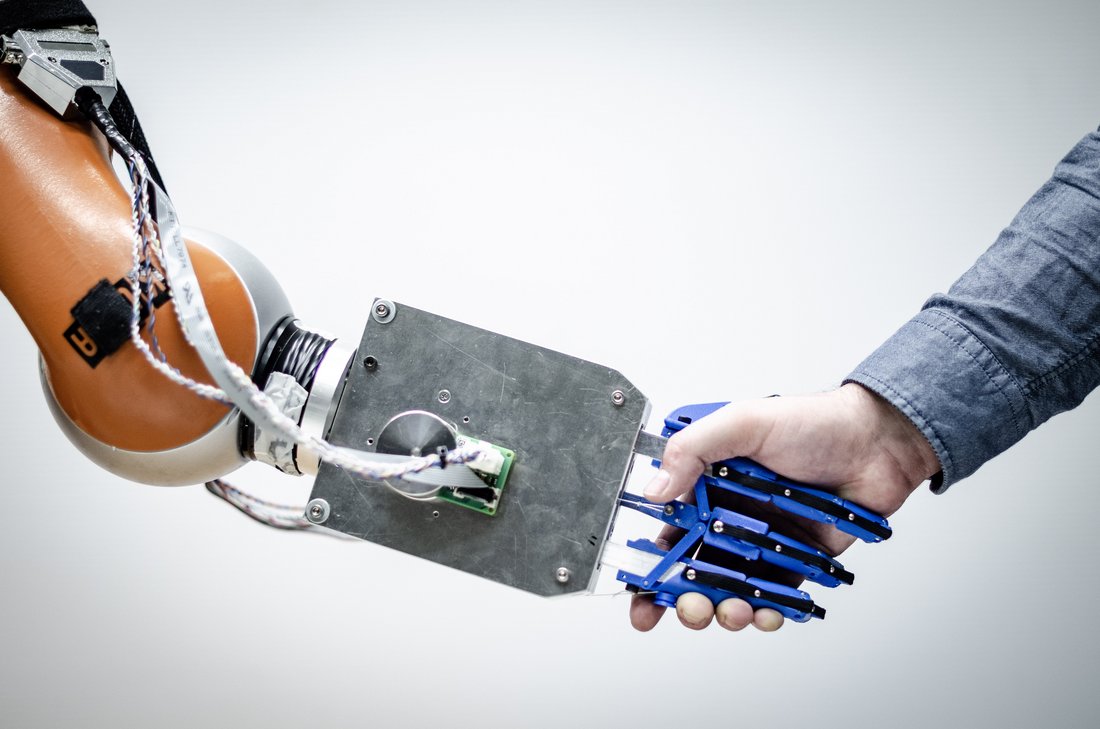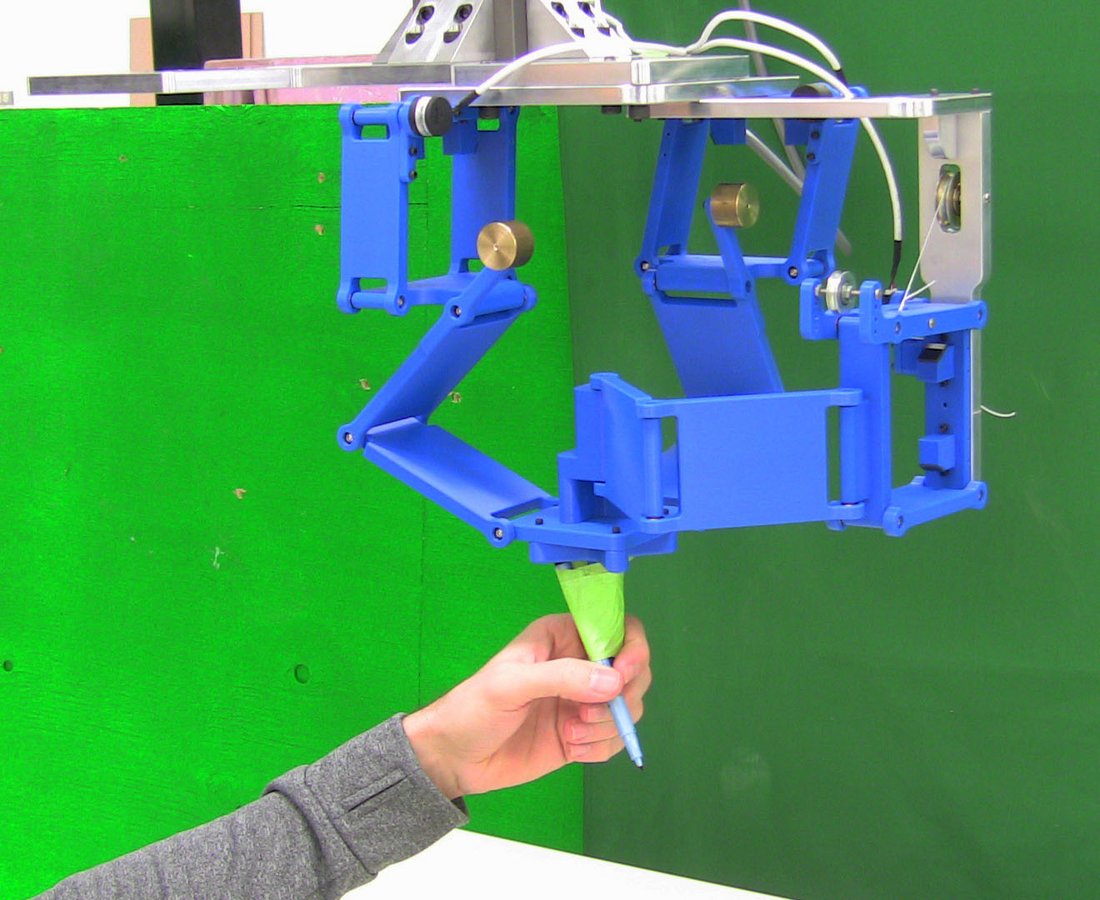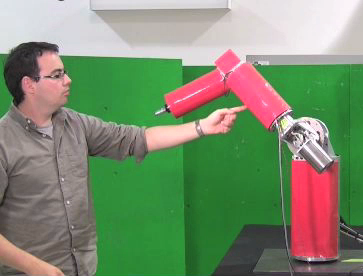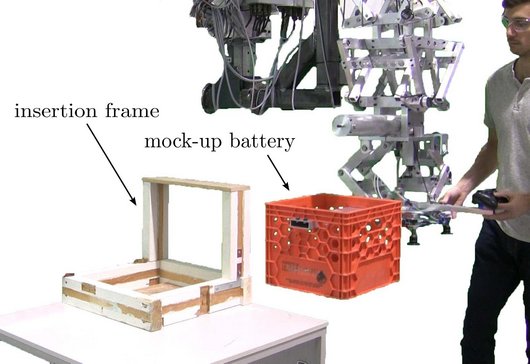
Physical human-robot interaction: a design focus
IEEE ICRA 2019 - Montréal, Canada - May 24 2019

Program (program.pdf)
Objectives
This workshop addresses the challenges faced in the design of robots that physically interact with humans. Physical human robot interaction (pHRI) involves several aspects of robotics including design, control, planning, sensing, learning and others. Recent advances in the area of pHRI has made it possible for cobots to be integrated in many industrial, domestic and healthcare environments. However, one of the main stumbling blocks in the development of collaborative robots is the design of the physical components of robots as well as the interaction between these components. Indeed, although planning, sensing and control are essential in the development of effective collaborative robots, the design issues remain the main barrier to be overcome. How do we built effective and lightweight robots? How do we design robots that are harmless to humans and yet capable of deploying forces that are large enough to accomplish useful tasks and manipulate significant payloads? How do we provide effective mobility to robots while making them robust and compact? These questions raise issues that pertain mostly to the design of collaborative robots. In this workshop, current and future solutions will be presented that aim at breaking new ground in the development of more effective, safe and responsive robots.

Format
The workshop will bring together senior researchers, young researchers, students and industry representatives. The goal is to create a forum for open discussions, exchanges and demonstrations. Collaborative robots developed by the organizers at Université Laval and at École de Technologie Supérieure will also be demonstrated on site in order to further stimulate discussions. Authors of contributed papers and invited speakers are also be encouraged to bring hardware for demonstration whenever possible. The invited presentations will be distributed throughout the day, in order to make the schedule dynamic. Moreover, presentations from academic researchers and from industry representatives will alternate in order to foster discussions. Between the invited talks, contributed papers will be presented and separated in 3 or 4 sessions. Contributed papers will be presented as lightning talks (3-minute presentations) followed by a poster session. This format maximises the one-on-one interactions and stimulates discussions.

Confirmed invited speakers
- Dr. Manuel Catalano, IIT, Italy
- Prof. Raffaella Carloni, Univ. of Groningen, The Netherlands
- Dr. Eiichi Yoshida, AIST, Japan
- Dr. Muhammad Abdallah, GM, USA
Publication
All papers will be published on the workshop web page. Also, the authors of contributed papers as well as the invited speakers will be invited to submit their papers to a special issue of ROBOTICA on the design of robots for physical human-robot interaction. The papers will have to go through the standard review process in order to ensure high quality. It is expected that the special issue will be published at the beginning of 2020.
- On the design of lightweight compliant wearable arms, J. Denis, C. Véronneau, L.-P. Lebel, M. Denniger, J.-S. Plante and A. Girard, Université de Sherbrooke, Canada pdf
- Physical human-robot interaction with a backdrivable (6+3)-dof parallel mechanism, L.T. Schreiber, T.S. Nguyen and C. Gosselin, Université Laval, Canada pdf
- Towards collaborative robots with sensory awareness: preliminary results using multi-modal sensing, A.L. Orekhov, G.L.H. Johnston, C. Abah, H. Choset and N. Simaan, Vanderbilt University and Carnegie Mellon University, USA pdf
- A kinematically redundant hybrid robot for low-impedance physical human-robot interaction, K. Wen, T.-S. Nguyen, D. Harton, T. Laliberté and C. Gosselin, Université Laval, Canada pdf
- A cable-driven robotic arm powered by magnetorheological clutches for upper-limbs physical interaction in virtual reality environment, L.-P. Lebel, B.-P. Busque, G. Julio, M. Denniger, A. Girard and J.-S. Plante, Université de Sherbrooke, Canada pdf
- Lightweight multi-degree-of-freedom displacement-sensing link shells for safe and intuitive physical human-robot interaction, G. Boucher, T. Laliberté and C. Gosselin, Université Laval, Canada pdf
- Parameter adaptation in admittance control for stable physical human-robot interaction, F. Ferraguti, C. Talignani Landi, L. Sabattini, M. Bonfè, C. Fantuzzi and C. Secchi, University of Modena and Reggio Emilia, Italy pdf
- A grasp manipulation selection chart to pick-up objects lying on hard surfaces, V. Babin and C. Gosselin, Université Laval, Canada pdf
- Compliant 5-dof robot: Mechanical design, S. Pisetskiy and M.R. Kermani, University of Western Ontario, Canada pdf
- What dynamics should impedance-controlled robots render?, K. Haninger, A. Bastidas-Cruz, and D. Surdilovic, Fraunhofer Institut für Produktionsanlagen und Konstruktionstechnik, Germany pdf
- A methodology to formulate user requirements for designing collaborative robots, A.-M. Macovetchi, F. Kirstein, Z. Doulgeri, and F. Dimeas, Blue Ocean Robotics, Denmark and Aristotle University of Thessaloniki, Greece pdf
- Collaborative camera-holder robotic system for minimally invasive surgery, J. Sandoval, M.A. Laribi and S. Zeghloul, University of Poitiers, France pdf
- Safety intelligent sensor for cobot: V2SOM, New device for rotary joints, Y. Ayoubi, M.A. Laribi, S. Zeghloul and M. Arsicault, University of Poitiers, France pdf
- Augmented reality based visual force feedback for physical human-robot interaction, M. Schönheits, German Aerospace Centre (DLR), Germany pdf
- Mechanical solutions to variable stiffness robotic arms, X. Zeng, T. Morrison and H.-J. Su, Ohio State University, USA pdf
- Vibrotactile communication for bilateral haptic cooperation with soft grippers, G. Salvietti and D. Prattichizzo, Instituto Italiano di Tecnologia, Italy pdf
Organizers
Professor Clément Gosselin
Département de génie mécanique
Université Laval
1065 avenue de la médecine,
Québec, Qc, Canada, G1V 0A6
Phone: +1.418.656.3474
Email: gosselin@gmc.ulaval.ca
URL: http://robot.gmc.ulaval.ca
Professor Vincent Duchaine
Département de génie de la production automatisée
École de Technologie Supérieure
1100 rue Notre-Dame Ouest,
Montréal, Qc, Canada, H3C 1K3
Phone: +1.514.396.8899
Email: vincent.duchaine@etsmtl.ca
URL: https://en.etsmtl.ca/Unites-de-recherche/CoRo/Accueil
